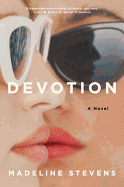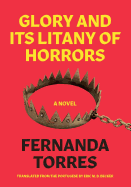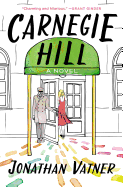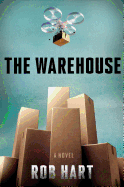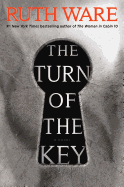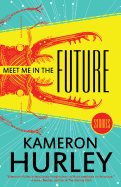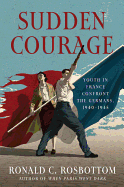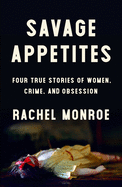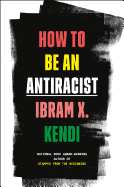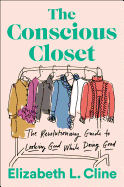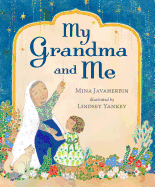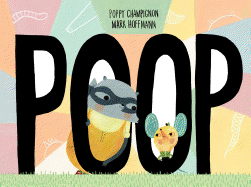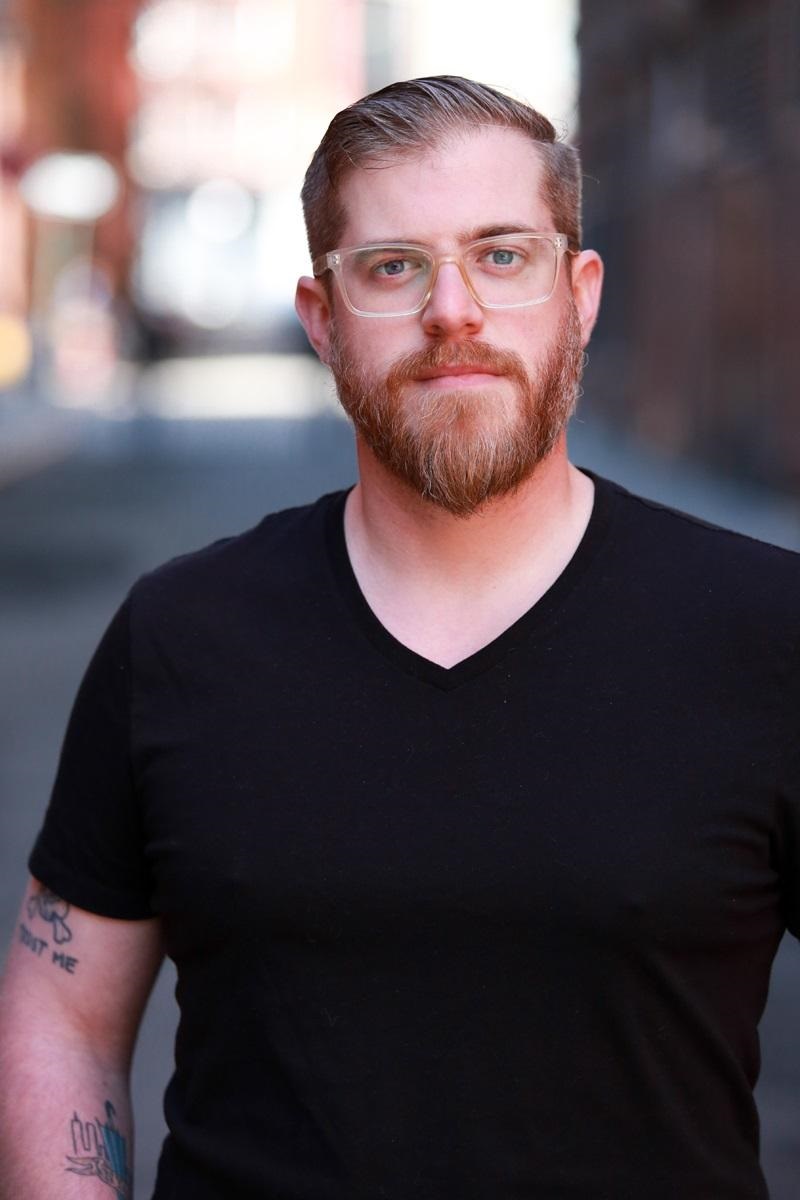 |
| photo: Anna Ty Bergman |
Rob Hart is the author of the Ash McKenna detective series and a collection of short stories, Take-Out. He's also co-written a novella, Scott Free, with James Patterson. The Warehouse, just published by Crown, is a standalone novel set in the near future, about an ultra-rich businessman who rules the economy and seemingly has more power than the government. The Warehouse is being developed as a movie for Ron Howard to direct. Hart lives in Staten Island, N.Y., with his wife and daughter.
The Warehouse's eerily realistic scenario shows what could happen if one man/corporation has too much power. How can consumers help prevent that scenario, especially when they can't afford to pay full price at local indie businesses and the big retailers offer deep discounts?
That right there is the problem: businesses aren't successful unless they provide a service people want. And people want goods that are both cheap and easily accessible. So how do we disengage from that system? I don't think there's an easy answer. It would take a complete realignment of our thinking and habits--accepting that not all things should be available to us at all times. That we should do our shopping locally, and not at giant retailers where employees have to go on public assistance because their salaries aren't enough to cover their bills. But in the towns where those giant retailers have chased away the local businesses, what do you do?
It's striking how convincing Gibson Wells's arguments are for his business practices. He sounds like a reasonable and benevolent CEO, as if he's offering employees and shoppers Utopia itself.
The narrative really didn't click until I got Gibson's voice in there. Cloud is practically a character--someone needed to defend it. Who better than the CEO? Like any CEO, Gibson believes he's a poster child for the benefits of capitalism. He came up with an idea that worked and it made him rich, and, in the process, he was able to provide people with jobs and institute green policies to help save the planet. The eggs that got broken on the way to making the omelet, he doesn't really think about.
It was fun writing his chapters. I tend to be a bit... liberal in my thinking, so to have to play the role of a corporate fat cat defending his legacy of worker exploitation was definitely a challenge. But it reinforced the idea that the best villains are the ones who don't think they're the villain.
How did you get into his mind? What was it like to stay there while writing Wells's chapters?
I used to work in politics as a communications director. And though I was mostly able to advocate for things I believed in, a few times I found myself having to root for things that I... didn't feel as strongly about. Part of being able to do that meant dismantling the idea and focusing on the positives. Here's the thing about Gibson: he's not entirely wrong! He built the biggest company in the world. He provided housing during a housing crisis. He's battling climate change at a point where the planet is being ravaged.
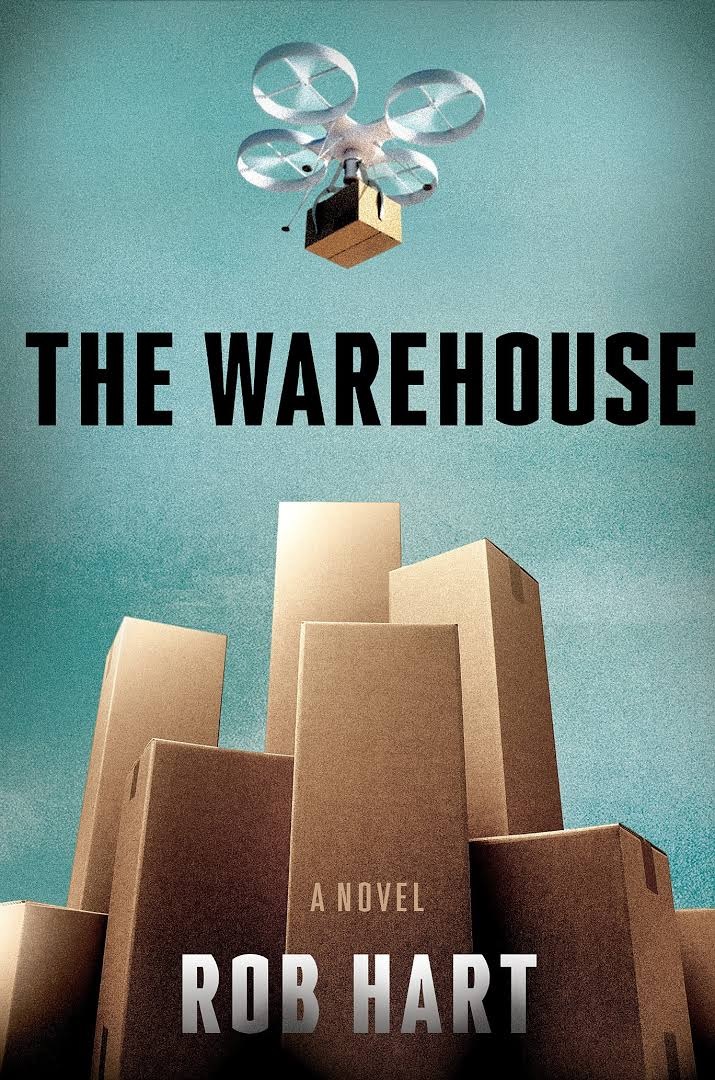 He says something later in the book that I don't want to spoil, but it's the thing he and his entire personality hinge on. And the key was finding that in myself--the confidence, the ego, the bluster; we all have those feelings in there somewhere--and really amplifying it. It's finding the cogent argument in favor of what Gibson did, and seeing it through his eyes. Which, frankly, after that experience, left me ready to fully embrace socialism.
He says something later in the book that I don't want to spoil, but it's the thing he and his entire personality hinge on. And the key was finding that in myself--the confidence, the ego, the bluster; we all have those feelings in there somewhere--and really amplifying it. It's finding the cogent argument in favor of what Gibson did, and seeing it through his eyes. Which, frankly, after that experience, left me ready to fully embrace socialism.
Your previous books have been well reviewed, but this is the one labeled your breakout, the one whose movie rights were snapped up. What do you think sets this one apart? Did you approach the writing any differently?
My previous books were about an amateur private detective named Ash McKenna, and they were pretty small. By small I mean intimate; they were about a scared kid growing into an adult. I loved writing those books, but I also knew it was time to dream a little bigger.
I've always been a huge fan of socially minded sci-fi, and I'd been kicking around the idea for this book since 2012. Once I finished the Ash books, I knew it was time to challenge myself. So I wrote an entirely different book that went nowhere, at the end of which I realized The Warehouse was the thing I needed to be doing. Part of what took so long was just cracking the narration. I was so used to writing first person. Switching to third person and multiple narrators was a huge challenge at first, but the more I fell into it, the more I found it opened things up.
Tell us about the moment you heard Ron Howard wanted to direct the movie adaptation.
I was sitting at my dining room table. An e-mail comes in from my agent: "We're getting a lot of interest in Hollywood. Do you see this as film or TV?" I guess he was looking for an unbiased opinion, so I wrote a belabored response that basically said I could go either way. And he wrote back: "Well, what if it's a movie directed by Ron Howard?" So I yelled, "What the f*ck!" My wife and daughter were sitting in the living room and my wife looked at me like, don't talk like that in front of our kid. Then I read her the e-mail and my wife responded, "What the f*ck!" That about sums it up. --Elyse Dinh-McCrillis, editor at The Edit Ninja
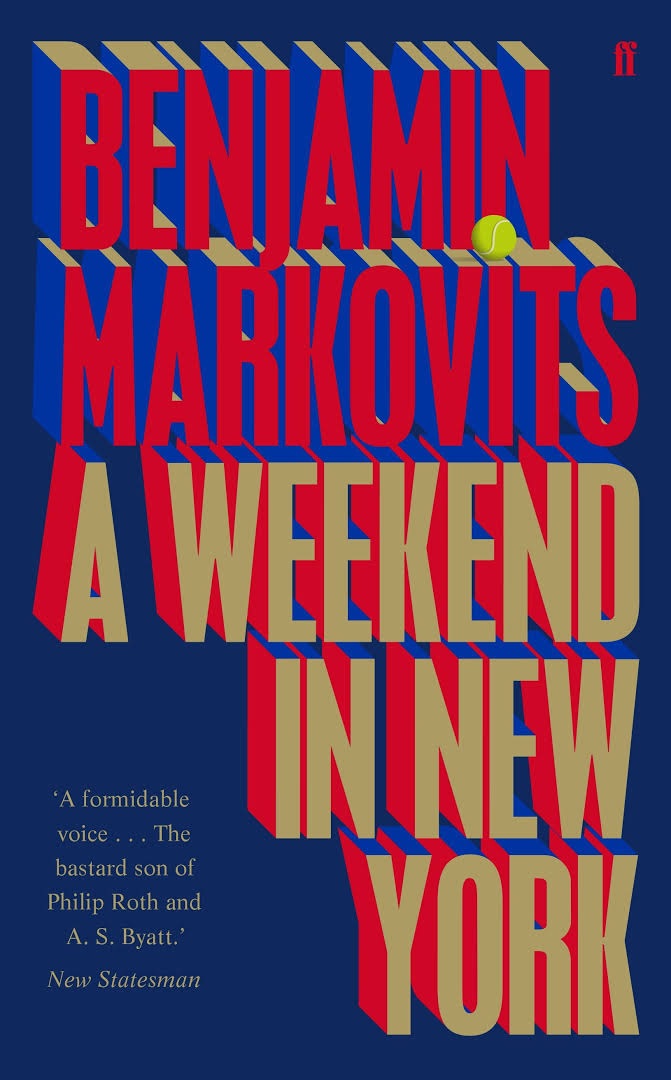 That said, I recently devoured A Weekend in New York by Benjamin Markovits (Faber & Faber), in which Paul Essinger, the 82nd ranked tennis player in the world, prepares for what might be his last U.S. Open first round match. He's a gifted player, but not top level ("For awhile it wasn't clear how good he would become, and then it was."). He may retire soon, at 33.
That said, I recently devoured A Weekend in New York by Benjamin Markovits (Faber & Faber), in which Paul Essinger, the 82nd ranked tennis player in the world, prepares for what might be his last U.S. Open first round match. He's a gifted player, but not top level ("For awhile it wasn't clear how good he would become, and then it was."). He may retire soon, at 33.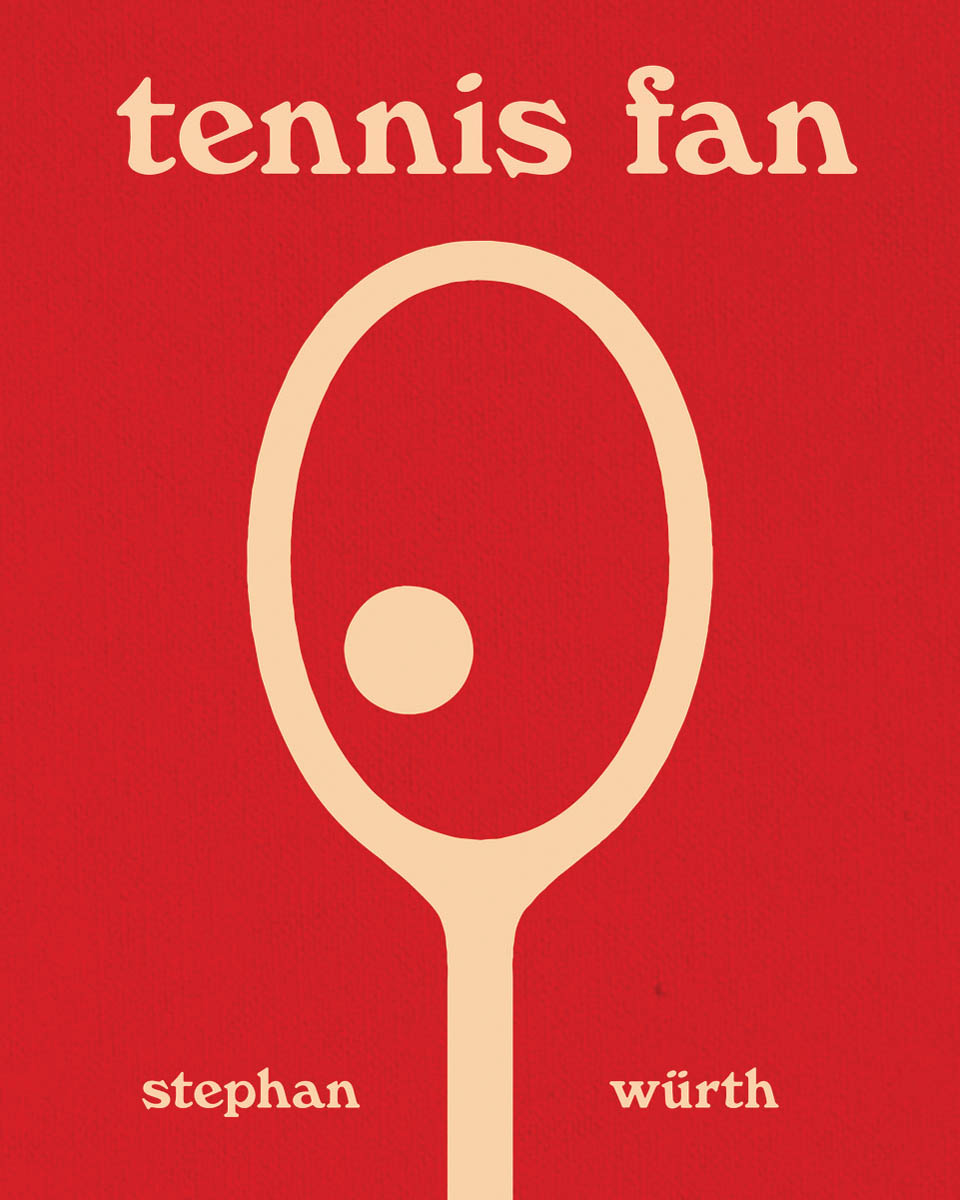 While reading the novel, I also happened upon Stephan Würth's Tennis Fan (Damiani/D.A.P.), a striking new collection of black & white photographs in which he documents "everything that reminded me of tennis, whether it's an ad for the U.S. Open on the side of a city bus, or watching tennis on TV, or even my own tennis bag in one of those beautiful Vespa taxis in Italy."
While reading the novel, I also happened upon Stephan Würth's Tennis Fan (Damiani/D.A.P.), a striking new collection of black & white photographs in which he documents "everything that reminded me of tennis, whether it's an ad for the U.S. Open on the side of a city bus, or watching tennis on TV, or even my own tennis bag in one of those beautiful Vespa taxis in Italy."



 He says something later in the book that I don't want to spoil, but it's the thing he and his entire personality hinge on. And the key was finding that in myself--the confidence, the ego, the bluster; we all have those feelings in there somewhere--and really amplifying it. It's finding the cogent argument in favor of what Gibson did, and seeing it through his eyes. Which, frankly, after that experience, left me ready to fully embrace socialism.
He says something later in the book that I don't want to spoil, but it's the thing he and his entire personality hinge on. And the key was finding that in myself--the confidence, the ego, the bluster; we all have those feelings in there somewhere--and really amplifying it. It's finding the cogent argument in favor of what Gibson did, and seeing it through his eyes. Which, frankly, after that experience, left me ready to fully embrace socialism. 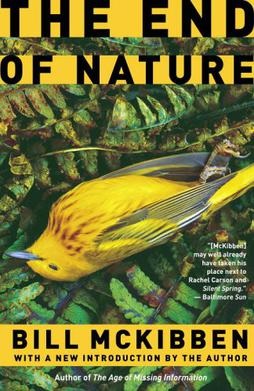 Thirty years ago, author and environmental activist Bill McKibben released The End of Nature, which is considered one of the first books about climate change written for a general audience. In 1980, while a student at Harvard after the election of Ronald Reagan, McKibben vowed to pursue a lifetime of environmentalism. He was inspired by the Yellowstone fires of 1988 to serialize what would become The End of Nature in the New Yorker. McKibben's book introduced many readers to the concept that human activity could alter the entire planet in dangerous ways. It was last published in 2006 with a new introduction by McKibben (Random House, $16, 9780812976083). Since The End of Nature, he has written 16 other works of nonfiction, many of which tackle environmental issues, as in Eaarth: Making a Life on a Tough New Planet (2010), or his most recent book, Falter: Has the Human Game Begun to Play Itself Out? (Holt, $28, 9781250178268), which was published last April.
Thirty years ago, author and environmental activist Bill McKibben released The End of Nature, which is considered one of the first books about climate change written for a general audience. In 1980, while a student at Harvard after the election of Ronald Reagan, McKibben vowed to pursue a lifetime of environmentalism. He was inspired by the Yellowstone fires of 1988 to serialize what would become The End of Nature in the New Yorker. McKibben's book introduced many readers to the concept that human activity could alter the entire planet in dangerous ways. It was last published in 2006 with a new introduction by McKibben (Random House, $16, 9780812976083). Since The End of Nature, he has written 16 other works of nonfiction, many of which tackle environmental issues, as in Eaarth: Making a Life on a Tough New Planet (2010), or his most recent book, Falter: Has the Human Game Begun to Play Itself Out? (Holt, $28, 9781250178268), which was published last April.